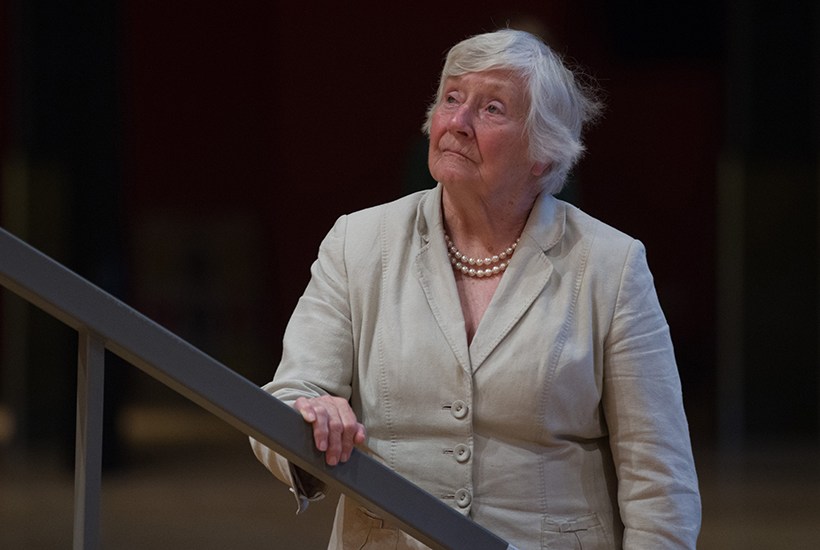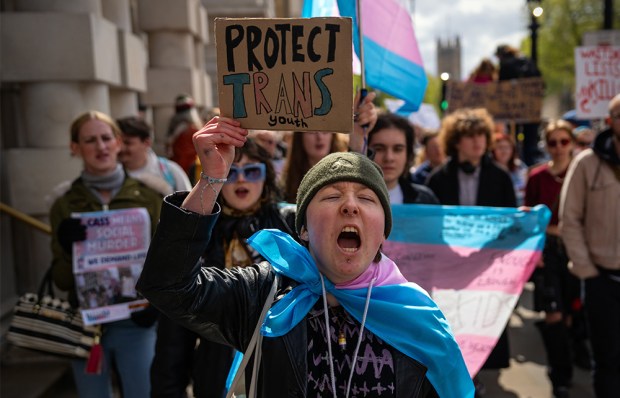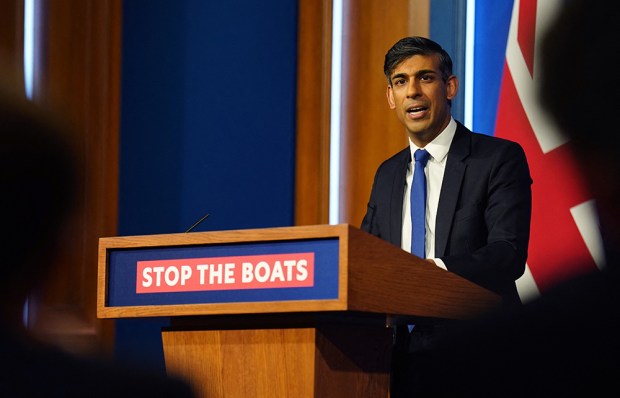Shortly after the news of Prince Philip’s death was announced by Buckingham Palace, a woman called Karen Geier tweeted the following: ‘Deeply saddened to hear it was peaceful. He deserved so much more (pain).’ Ms Geier is a writer who has been published by, among others, the Guardianand the Huffington Post. That’s the kinder, gentler left for you. Meanwhile, the BBC received 100,000 complaints (a record) for its relentless coverage, the entire schedule having been ripped up on 9 April so that a succession of people could explain to us how nice the Prince was. I suspect it wasn’t only carping lefties phoning in to moan — I grew a little tired of it all by lunchtime.
It is hard — in this instance — not to feel sorry for the BBC: damned if they do, damned if they don’t. The poor buggers will have been through countless rehearsals on how to cover the Duke’s death, the same ones I endured when I worked for the BBC back in the last century (except then it was largely for the Queen Mum, who in our reconstructions always expired with a whole trout sticking out of her mouth). There is a strict protocol which has to be followed and years’ worth of pre-recorded material to shove on air. It is a kind of anti-journalism, in that it never tells you anything you didn’t know already and the story itself, while undoubtedly sad, is journalistically unremarkable: ‘Very old man with heart condition dies.’
It is always the same. I recall being bored to death when Nelson Mandela corked it. ‘Famous nice black man dies,’ I wrote at the time, causing the left to erupt in fury and call me a racist, as per usual. They failed to spot that I had made very similar comments when Margaret Thatcher died and we were treated to reruns of the miners’ strike, the Falklands War etc. With the passing of old Nelson, I was mildly interested to hear some of the eulogies from world leaders, the reaction in his home country and maybe an expert to predict how quickly South Africa would descend into the tyrannical, violent and corrupt pit of hell inhabited by almost every other country on the continent (about two years, as it turned out). I didn’t want 24 hours of hagiography and nor did I when Prince Philip bought the farm. A BBC exec once asked me what plans I had in place for the expected death of Pope John Paul II. He wanted details. Very old Polish manifestation of God on Earth dies, etc. I was editor of Today at the time. I told the boss that we would be doing the programme exactly the same as usual, but that we’d get the Revd Ian Paisley to do Thought for the Day.
Three days after Prince Philip, Shirley Williams popped her clogs and the encomiums were by and large measured and proportionate. The most oft-repeated phrase was that she was expected to become Britain’s first female prime minister but apparently that honour went to somebody else. Nobody I heard made the reasonable observation that she destroyed the country for three generations, invented woke and helped to liquidate a perfectly decent political party, the Social Democratic party, of which she was the first president. Perhaps people thought it was too soon to make those sorts of comments.
What we heard, instead, was that Shirley Williams was incredibly nice — which she was. I met her on several occasions and she was always utterly charming. But then I’m told that Pol Pot could be incredibly winning, once you got to know him. OK, Shirley Williams should probably not be compared with old Pol — but niceness is perhaps an overrated virtue: one must always look at outcomes. Richard Beeching, for example, was also regarded as a friendly sort of guy — but it didn’t stop him crucifying our rail network.
Anyway, held in a certain suspicion by Harold Wilson, before he went doolally, Shirley found herself with the education portfolio as soon as Jim Callaghan became prime minister in 1976. With great fervour she immediately began to dismantle the country’s grammar schools which, during the 1960s, had elevated many children rather less high-born than the daughter of Vera Brittain into top universities. However, personally aghast at her own proposals, she moved house to ensure that her daughter, Rebecca, was able to attend a grant-aided school, Godolphin and Latymer, which she knew had absolutely no intention of becoming a comprehensive and instead went private. Thus Shirl laid down a winning template for future leftie hypocrites such as Diane Abbott, Emily Thornberry and the ghastly Shami Chakrabarti: volubly opposed to private or selective schools but absolutely determined to send their own kids to one or the other. Williams was also an early advocate of the core curriculum, which has led to education becoming a conduit for tendentious liberal propaganda — even if, late in the day, she worried that central control over the curriculum had possibly gone too far. She epitomised white, late 20th century,bien pensant upper middle-class liberalism: no creed has more damaged this nation.
She was a founding member of the party of which I am a proud member, the SDP. But the problem here was that, like Roy Jenkins, she was not really a Social Democrat at all: she was, from the beginning to the end, a liberal, lower case, and of course later upper case. Patriotism and a love of the nation state, together with a scepticism towards the ambitious EEC and a belief in communitarianism, held no allure for her, as it did for David Owen. Like Jenkins and the Liberals, she appealed to the affluent, the well-heeled and the well-mannered. The disastrous merger with David Steel’s Liberals — opposed of course by Owen — meant almost the end of a party which had genuine appeal among the working class. (Almost: we’re still going, and growing now.) But Shirley had no problem with that merger. She had come home at last.
Got something to add? Join the discussion and comment below.
Get 10 issues for just $10
Subscribe to The Spectator Australia today for the next 10 magazine issues, plus full online access, for just $10.
You might disagree with half of it, but you’ll enjoy reading all of it. Try your first month for free, then just $2 a week for the remainder of your first year.















Comments
Don't miss out
Join the conversation with other Spectator Australia readers. Subscribe to leave a comment.
SUBSCRIBEAlready a subscriber? Log in